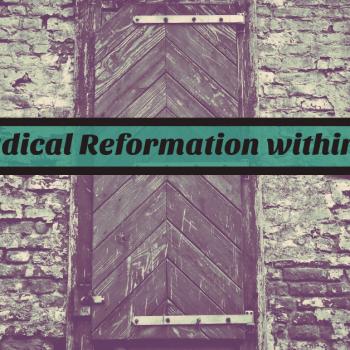
Recently, President Obama made some comments about restoring the pre-1967 borders to Israel. This led to quite an uproar in the Jewish community and in among Zionist Fundamentalist Christian groups. Much of the alliance that the church in America has had with Israel, comes from the belief that God is currently dealing with two different peoples: 1) the church, 2) Israel. This belief is accompanied by some form of Dispensationalism that teaches that in the end, a remnant of Israel will be saved and will play a significant role in the end times. I question such an approach to New Testament theology.
Walter Brueggemann rightly wrestles with the tension between the promises made to ancient Israel and their appropriation for modern Israel. He believes that the final form of Torah came during the Exile and that land is therefore an issue of return more than it is of the original conquest (271). While I hold to a more historical reading of the Torah than perhaps he would, the pastoral quality of the utterance of God for the land during Exile cannot be ignored (274). But as NT Wright has noted, even after returning to the land, it seems Israel was still in spiritual exile.
Does the promise of land still apply? Israelis’ zeal for land continues to brew unjust bloodshed against Palestinians. Brueggemann rightly differentiates between ancient Israel and the modern nation (274). What Brueggemann doesn’t do in this particular section of his book is thread the needle into the New Testament idea of a “new Israel.”
Paul states: “If you belong to Christ, then you are Abraham’s seed, and heirs according to the promise” (Galatians 3.29). The same kind of logic is put forward in Ephesians chapter 2 as well, where the division between the Jews and Gentiles has been done away with by the peace of the cross. Out of the two groups God through Christ is forming a “new humanity.”
These two texts make clear that it is not nationality that determines Abraham’s family any longer, but all who “belong to Christ” are “Abraham’s seed!” The church is in direct continuity with all of the faithful Israelites throughout history, and all the promises in the OT, are now the Church’s. Except the land is expanded to the whole earth! Therefore, to blindly support Israel because they are “God’s people” in the present is simply unjust.
1) There’s several stories of US Christians promoting policies that blindly support Israel, which led to Israelis killing Christian Palestinians. How has a “two peoples of God” theology caused contributed to such oppression?
2) Brueggemann closes his discussion on this question by quoting Hebrews 11:13-16. Does not the story of Scripture as prophesied by Isaiah and Revelation, reveal that the true holy land will be renewed creation? How should this shape our political perspective regarding national Israel in the present?
Below is a chart that visually demonstrates the perceptive of the people of God that was described above. (PS – This is different than old fashioned “replacement theology.” Also, may I add that I believe in the possibility of *some* who may be “unbelievers” [including Jewish people] might be saved, because God is merciful and just beyond our knowing!)

________________________
Source:
Brueggemann, Walter. Old Testament Theology: An Introduction. Nashville: Abingdon, 2008.











